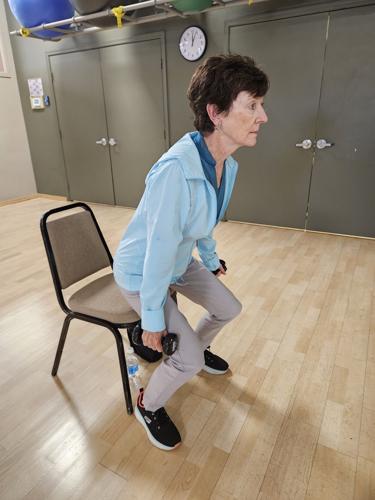The goal here is to regain the ability to perform at previous or exceeding levels, while managing energy.
To accomplish this, the first thing is to deal with fatigue, and it’s important to understand the difference between general and peripheral fatigue. More training at the best energy level available equals better results. Factors that affect fatigue include the central nervous system, muscle damage loss, metabolic disturbance, energy depletion and personal perception. Various methods such stimulation, relaxation and assistance are helpful. Modalities include an active recovery, stress management, sleep hygiene, nutrition, cold water immersion, contrast therapy, compression, vibration, massage and sauna.
The important factor in all this is allowing the time to recover. You can’t train hard all the time. Allow four hours after a light endurance training and 24 hours after a high volume training. Allow 24 to 72 hours after resistance training. If doing both on the same day, do low intensity endurance first. Do not skip warm up and cool down.
Mindfulness is a powerful stress management technique along with breath work, particularly practice four-seven-eight breath, inhale to four, hold for seven, exhale to eight, or what works for oneself.
Monitor and measure recovery through neuromuscular, cardiovascular and perceptual statistics. The easiest are heart rate variability, resting heart rate and repetitions/resistance/weight and perception on a one to 10 level of stress.
As we age, interruption to our work out schedule may have a faster effect, and it helps to reduce the weight and repetitions for a few sessions to get back or better than before.
Remember to always have fun and live life to the fullest!
In this type of class, there are two purposes. The first is to build muscle mass to recover lost strength and functions. Second, is to counter act the neurologic deficits that occur and to prevent the progression of the disease symptoms. We do this with weighted movements, education at every session, as well as sharing experience, strength and support for one another.
We are listed in HOA-1 under exercise and support; Classes are held at 12 p.m. on Mondays at the Fitness Center and from 1:30 p.m. to 3 p.m. in the HOA-1 Arts and Craft Center, room 3, located next to the Gift shop. All are welcome! We have quarterly support and educational meetings on the third Thursday: April 18, July 18, and October 17. For Parkinson’s info and support, visit pmdalliance.org.
For more information, call Vera Shury, Neuroplasticity Coach, at (520) 275-8755 or send an email to vera@libertyscience.com.






